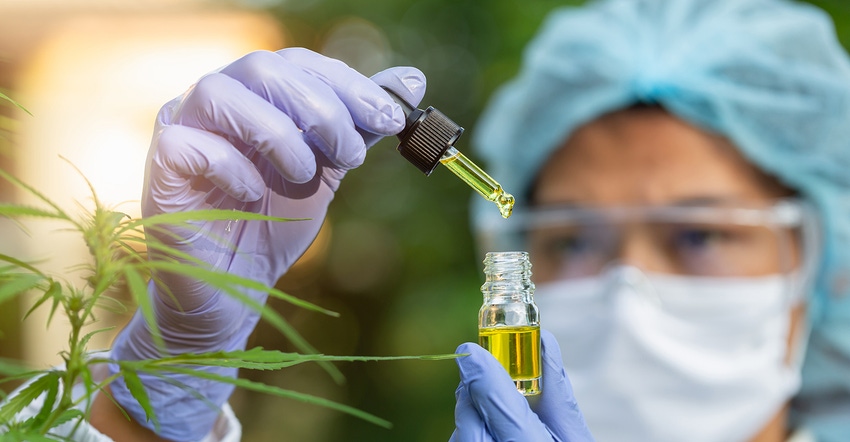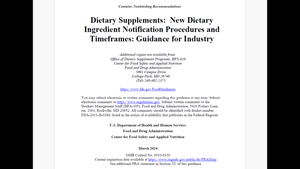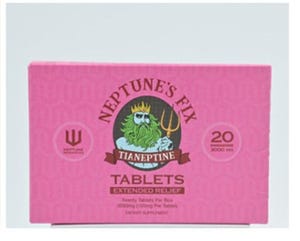Good manufacturing practices: More is usually better
With the new, booming CBD market still taking shape, companies must engage in GMPs to ensure they stay on the right side of the law.
November 1, 2019

With the passing of the 2018 Farm Bill, hemp and CBD industries have exploded, bringing a parade of fresh—and, in some cases, first time—processors and manufacturers of ingestible products. In this infant hemp industry, the legal standards of quality have much to be ironed out. This is especially true regarding regulations from the U.S. Department of Agriculture (USDA) and FDA. All of the rules and regulations will take time and, in some cases, could be years, but this has in no way slowed down the CBD industry, which is projected to explode to upward of US$20 billion by 2024, according to Forbes. With this apparent gold/green rush and lack of clear guidance on best practices, the industry is wrought with organizations cutting corners and taking risks.
This leads us to GMPs (good manufacturing practices) for the CBD industry. The general rule of thumb is to follow FDA guidelines per regulation 21 CFR part 110. GMPs can help a business not only protect itself from regulation currently and in the future but can set it apart from its competition. To determine what processes to put in place, an independent third-party company—a contract research organization (CRO) who specializes in GMPs—can provide consultation. Knowing some basic law, as well as some dos and don’ts, can save an organization time, energy and resources.
Sherman Act
The Sherman Act (15 U.S.C. §§ 1-38) applies to all foods, beverages and cosmetics manufactured by facilities regulated by health departments, and establishes a system of requirements, controls and verifications to ensure the safety of manufactured products. The importance of the Sherman Act relating to GMPs is that it prohibits the manufacture of “adulterated” food products, defined as any food that “…bears or contains any poisonous or deleterious substance that may render it injurious to health of man or any other animal that may consume it,” per 21 U.S.C. §§ 342. For this reason, it is imperative for companies and their manufacturers to implement GMPs for analyzing and removing known or reasonably foreseeable hazards from their products. One example of a system that could, and probably should, be implemented is being laid out in California under the hazard analysis and critical control point (HACCP) system. Within this system, several types of known or reasonably knowable biological, chemical and physical hazards must be identified. In addition, certain protocols should be implemented regarding training, hygiene, supplies, manufacturing, equipment, research and Development (R&D), growing, storage and premises.
Dietary Supplements
According to FDA rules, CBD does not fall under foods, beverages or cosmetics; therefore, a look at FDA’s current rules for dietary supplements is helpful when implementing GMPs. Under FDA rule laid out by USDA, manufacturers are required to evaluate the identity, purity, quality, strength and composition of their dietary ingredients and supplements. GMPs are crucial to the supplement industry’s ability to deliver safe, accurately labeled products to the consumer and in achieving public health benefits noted by Congress in the preamble to the Dietary Supplement Health and Education Act of 1994 (DSHEA).
Because of FDA’s reluctance to allow CBD as a “dietary supplement,” following the current FDA rules for GMPs does not shield a company from receiving a warning letter from FDA.
Warning Letters
The number one way a company can capture the attention and wrath of FDA is in making unsubstantiated therapeutic claims about its products, which is in direct violation of the Federal Food, Drug and Cosmetic Act (FD&C), and may put consumers at undue risk.
Companies found to be in violation of FD&C will receive warning letters addressing any violations. From the time of receiving the letter, a company is granted 15 working days to respond to FDA addressing how it mitigated any and all of the violations. Failure to respond and address the issues in a timely manner will result in legal action.
Ways a Brand Can Protect Itself:
Add language to its website, labeling and merchandise that states “These statements have not been evaluated or approved by the Food and Drug Administration. This product is not intended to diagnose, treat, cure, or prevent any disease.”
Do not use the phrases “Independent Research, Multiple Tests or Studies have shown…” or anything that could be misconstrued as such. This includes using links to studies or other websites making the claims it wants to support on its website. FDA is not dumb. Sending consumers to another website in hopes to circumvent rules that are intended to protect the health of citizens is not a defense.
Implement GMPs. By having a quality plan and good batch control, brands ensure they can verify the presence and concentration of constituents they claim are present.
Know and trust the lab it partners with. Verify it has certified calibrations and MDL (method detection limit) studies as well as appropriate batch quality control (QC) samples that can document valid results with high confidence.
Brands that receive a warning letter must immediately call an attorney to review the letter for inconsistencies or inaccuracies. It should also immediately contact FDA to let them know it is working to alleviate the issues. If accurate, the brand should see it an as an opportunity to better develop GMPs to help the organization move forward.
Matthew Smith, Counsel to Hoban Law Group has a long history with the cannabis industry dating back to the 1990s. Smith's first career was as a physicist. This combined with his experience of being in business, including cannabis businesses, and his training as a teacher, gives him an ability to analyze issues, solve problems, explain what is happening to clients and do so in a cost-effective way. Smith has extensive corporate and transactional experience, including corporate structuring, capital raises, acquisitions and contract drafting.
About the Author(s)
You May Also Like




.png?width=800&auto=webp&quality=80&disable=upscale)